Renowned physician-researcher Julian Solway, MD, goes emeritus this fall after a nearly 40-year career at the University of Chicago securing more than $165 million in research funding, serving thousands of patients, and launching the Institute for Translational Medicine (ITM) that has fueled the scientific innovations of hundreds of faculty and helped families receive cutting-edge care.
“UChicago provides the perfect environment to have a most fulfilling career,” said Solway, the Walter L. Palmer Distinguished Service Professor of Medicine, Founding Director of the Institute for Translational Medicine (ITM), and Associate Dean for Clinical Science Research/Translational Medicine. “My own research primarily focused on asthma, but I’ve also dedicated myself to advancing the careers of others and scaling an institute to accelerate health research at UChicago and institutions all across Chicagoland.”
Mark Anderson, MD, PhD, Dean of the Biological Sciences Division, said Solway transformed UChicago’s physician-researcher environment with the ITM, which has been key to making scientific breakthroughs and accelerating findings into real-world applications.
“We’re so fortunate to have a leader like Julian pave the way for multidisciplinary research and programs supporting physician-scientists and scientists across departments,” Anderson said. “The discoveries that his initiatives helped fuel allow us to be at the forefront of medicine.”
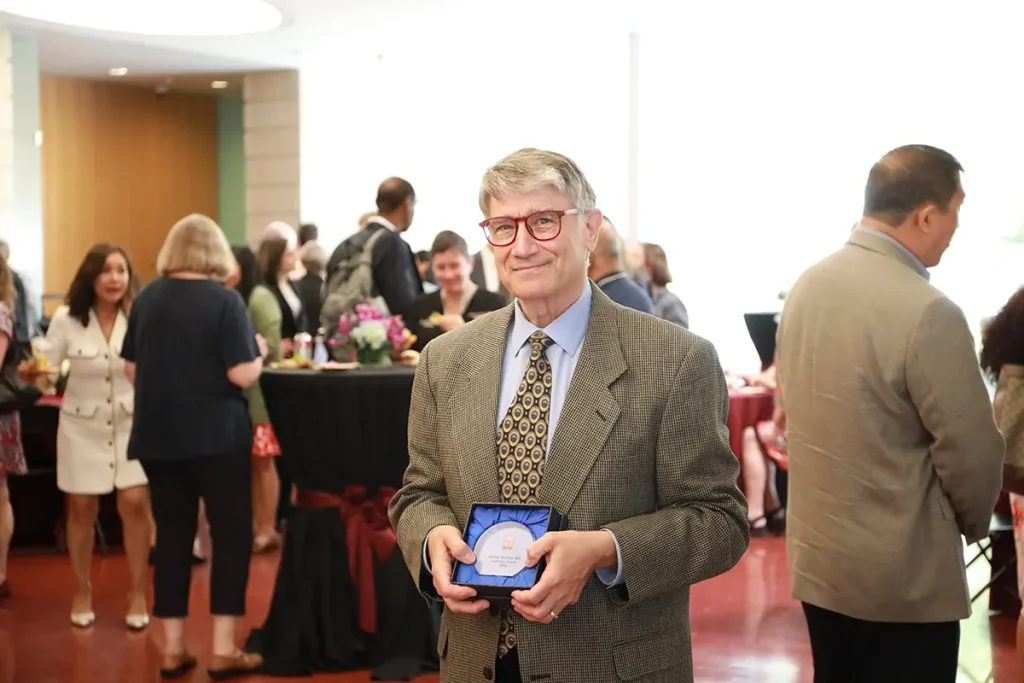
Under Solway’s leadership, the ITM received more than $100 million from the National Institutes of Health (NIH) National Center for Advancing Translational Sciences (NCATS) Clinical and Translational Science Awards (CTSA) Program and expanded to six Chicagoland institutions, including RUSH, Loyola University Chicago, Endeavor Health, Advocate Aurora Health, and the Illinois Institute of Technology along with UChicago. Their most recent renewal earned an almost perfect score, demonstrating ITM’s national reputation for accomplishment and vision.
“There is no better mentor in the universe,” said Lainie Ross, MD, PhD, who co-directed the ITM with Solway for 15 years before becoming the Inaugural Chair of the Department of Health Humanities and Bioethics at the University of Rochester. “His incredible vision helped us think about how we could make our collective ideas a reality.”
Solway’s creativity and camaraderie led to several major initiatives, including The New Normal Campaign to increase awareness of and participation in health research. He also emphasized the importance of the “sociome,” the everyday factors in people’s daily lives – like exposure to green space, sunlight, noise, and violence – that can have huge health impacts. He mobilized teams to create a big data platform so that physicians can give patients more customized care.
“He’s published many important papers, but his biggest contribution is his cadre of trainees who are now all over the world improving the lives of other trainees and patients,” said Jeffrey J. Fredberg, PhD, Professor of Bioengineering and Physiology at Harvard University.
Solway attended the Harvard Medical School-Massachusetts Institute of Technology (MIT) MD Program in Health Sciences and Technology after graduating from MIT in electrical engineering. He joined UChicago in 1985.
Solway’s expertise in engineering and medicine set him apart, leading to innovative research and a commitment to mentorship so the next generation could be just as unique in the ideas they chose to explore. Donald P. Gaver, PhD, until recently Chair of Biomedical Engineering at Tulane University, credits Solway with encouraging the out-of-the-box thinking that shaped his career.
“I was an outlier,” said Gaver, a physicist and former Solway postdoc whose experiments linked physiology and physics. “Julian was awesome and let me explore. It was magic.”
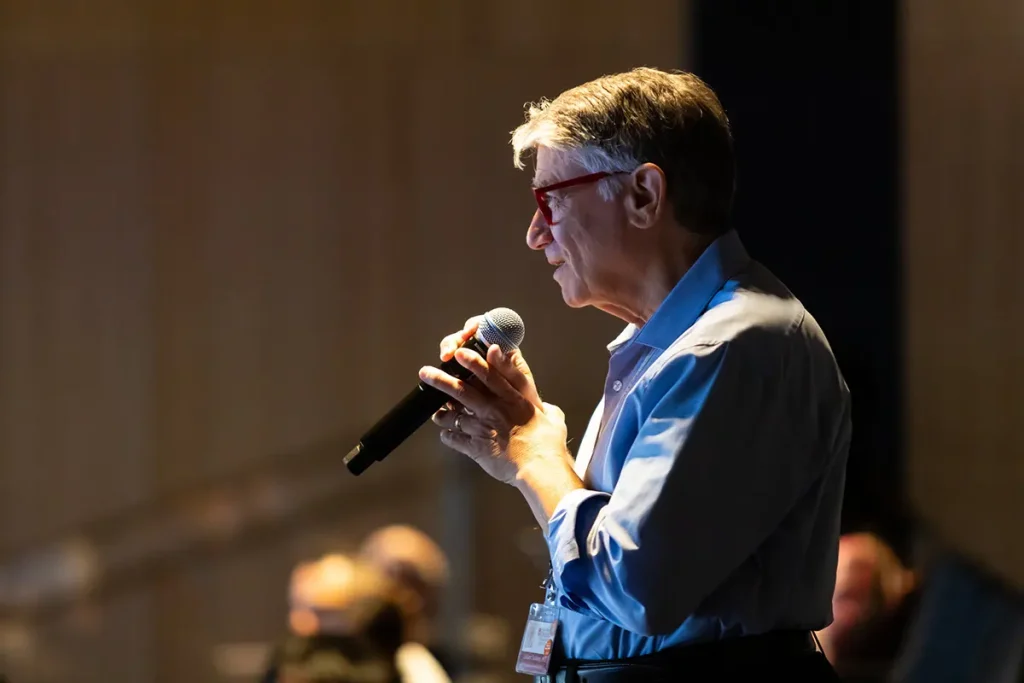
Solway has published more than 225 peer-reviewed papers, editorials, reviews, and book chapters; spoken at events around the world; and held leadership roles at UChicago and nationally, including co-chairing the NIH CTSA Program Steering Committee. While his professional accomplishments kept him busy, Solway still made time for loved ones, performed in bands, and played the piano with colleagues at conferences.
“He never forgot that life has balance,” said Andrew J. Halayko, PhD, a former UChicago fellow and now Professor at the University of Manitoba. “If Julian Solway had time to referee his kid’s soccer game, then there was no excuse for me to say that I don’t have time to do anything but work.”
Solway’s colleagues said they cherish his humor, mentorship, and trademark “Julianism” phrases and questions that spark laughter and encourage people to think in new ways.
“I can’t wait to see what he’ll do next,” Ross said. “He has so many great talents.”
Stories From Colleagues and Friends
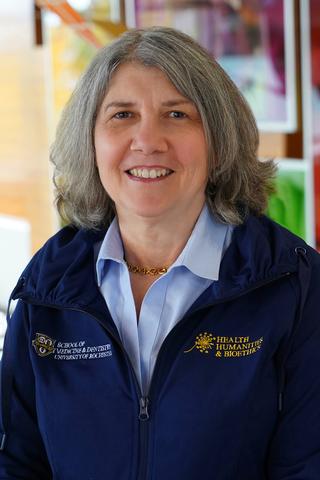
Lainie Ross, MD, PhD
“Julian values every person for who they are. He believes that everybody brings different strengths to the table.”
Lainie Ross, MD, PhD, co-directed the ITM with Solway for 15 years before becoming the Inaugural Chair of the Department of Health Humanities and Bioethics at the University of Rochester.
“Julian represented the Department of Medicine and basic science research, and I represented the Department of Pediatrics and ethics and community engagement, so we really sort of covered the whole range of the clinical and translational science spectrum. To Julian’s credit, we were not going to divide and split. We were going to do everything as a team because if he couldn’t explain basic science ideas to me, then that was a problem. And if I couldn’t explain why the humanistic side of the equation was important, then it was a problem. He really valued the collaboration. He valued thinking about the picture holistically. He is not only curious, but he also can see where all these disparate pieces belong together.
He can see beyond all of the obstacles that everyone else sees and he can say this is where we need to go and we’ll find the path together. He was able to figure out ways of connecting people in ways that sometimes dumbfounded the rest of us, but we were always scrambling to help him because he had this beautiful vision.
There’s nothing you could ask Julian that he wouldn’t do. You just can’t say that about a lot of people. Julian was there for everybody who walked through his door.
The way he treated people, you would never know if he were talking to a trainee or the dean…he treated everyone really respectfully.
Julian, for 15 years, we worked side-by-side, building the ITM with amazing faculty and staff colleagues. I value your curiosity, your creativity, your intellect, your leadership, and your friendship. I hope we find reasons to continue to collaborate. Be well.”
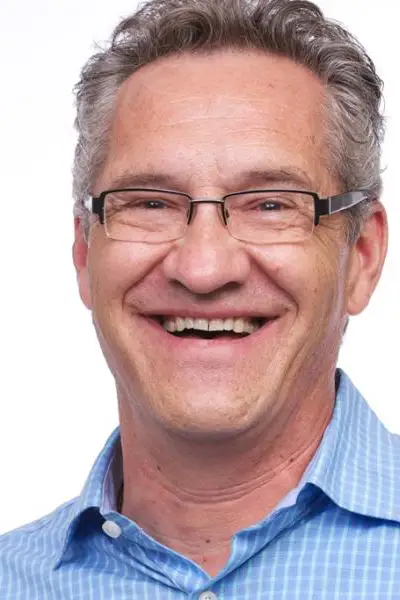
Andrew Halayko, PhD
“Julian is an incredible mentor and believes that most people have something to offer that you personally do not. You can help them excel by letting them be themselves.”
Andrew J. Halayko, PhD, is a former UChicago fellow and now Professor at the University of Manitoba.
“I can’t state strongly enough how much of an impact Julian had on getting me to meet the right people and giving me platforms at important meetings.
He became the chair of a committee called the programming committee for one of the assemblies at the American Thoracic Society (ATS). That committee looks at the abstracts, they grade them, they decide how to create sessions of talks or posters. He added me as a member of that committee, as a fellow.
Since then to this day I’ve served on ATS committees or as a chair. I’m now the editor-in-chief of the ATS Red Journal, which is the number one cell molecular biology journal in respiratory sciences. So had Julian not added me as a member of that ATS committee early in my career, I might not have discovered my love for that kind of work or be where I am today.
Julian is also kind. When I was a fellow, the university didn’t have an extra desk available for me in the fellows’ room when I started. Julian had a large office, and he actually had a desk brought in, put in the corner, and that was my temporary office for a number of months.
He was a very good teacher without you knowing you were being taught. His style is very much by example and very much asking the questions so that you figured out that you’d screwed up or that you maybe should have done something slightly different or had considered something that you hadn’t considered. I learned that there’s a way you can be critical and honest with people, but encouraging at the same time.
He was very good about that. His emotional intelligence is through the roof.
Julian is really an exceptional scientist and thinker. His breadth of knowledge is really immense. He’s one of those people that you think, there’s nothing he doesn’t know, from engineering through to biology. I mean, think about it. He’s a clinician trained in respiratory mechanics and respirology.
His capacity as being a truly innovative scientist is really exceptional.”
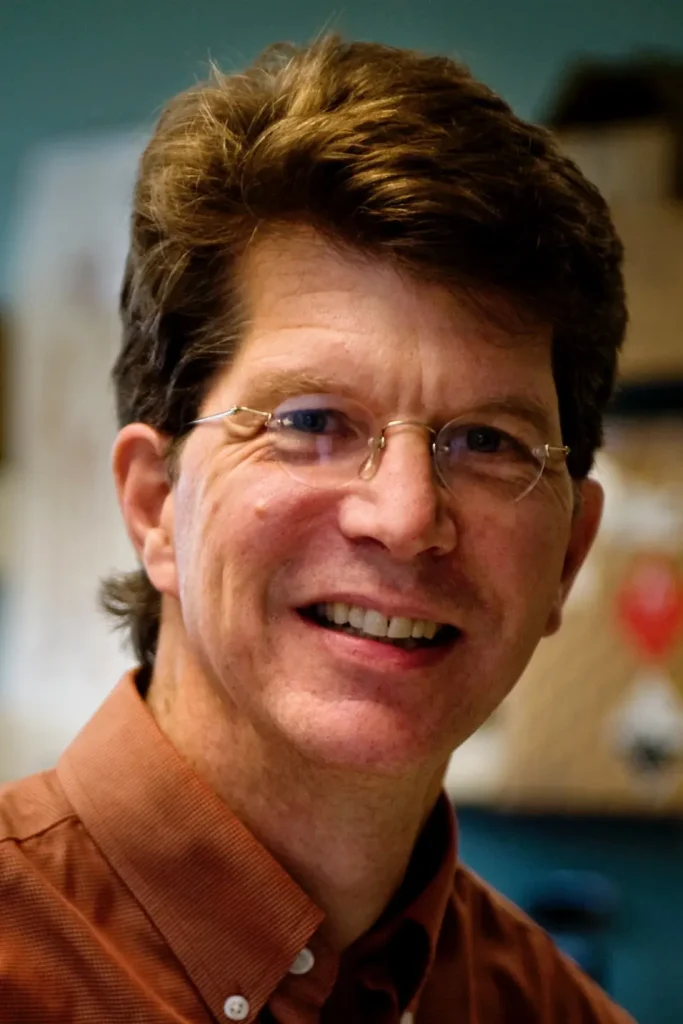
Donald P. Gaver, PhD
“Follow your instincts. Don’t follow the crowd.”
Donald P. Gaver, PhD, until recently Chair of Biomedical Engineering at Tulane University
“When I think of Julian, I can’t help but smile. He’s one of my favorite people in the world—not just because he’s brilliant, but because of how genuinely kind and supportive he is.”
I was a graduate student at Northwestern University in a program in theoretical applied mechanics. I didn’t know what I was going to do when I finished my PhD. Julian invited me to be a postdoc in his lab. It was transformative for me. When I left Northwestern, I was working on partial differential equations and really simple idealized models of surfactant spreading on thin films. I don’t think it would have had any impact.
And then when I was put into the environment at the University of Chicago, I could see the kinds of problems that could be important from a physicist frame of reference that also had physiological impact. Julian was just awesome at that and he let me explore. I did these crazy experiments that nobody was thinking about doing. I was doing these experiments with miles of flexible polyethylene tubes, the kind of plastic tubes that posters are held in, and looked at the physics behind what happens when you try to open a collapsed lung airway. He didn’t direct me. He guided me by gentle persuasion.
We published those experiments that linked physiology and physics in the Journal of Applied Physiology, and they’re still cited regularly 35 years afterwards. And when I decided to accept an offer from Tulane University for a tenure-track faculty role, Julian set me up for success like you wouldn’t believe. He is the best writer I’ve ever seen, and he helped me write grants to springboard my financial support when I started here at Tulane. I got all three grants within a month of being hired here.
Academia often breeds narcissists, but that’s not Julian. Julian is super good at guiding from behind. He doesn’t need attention for his own self.
He’s a craftsman literally in his hobbies from woodworking to performing as a pianist with his bands, and figuratively in molding his research, innovative programs, and the careers of those he mentors. He draws the best out of people.
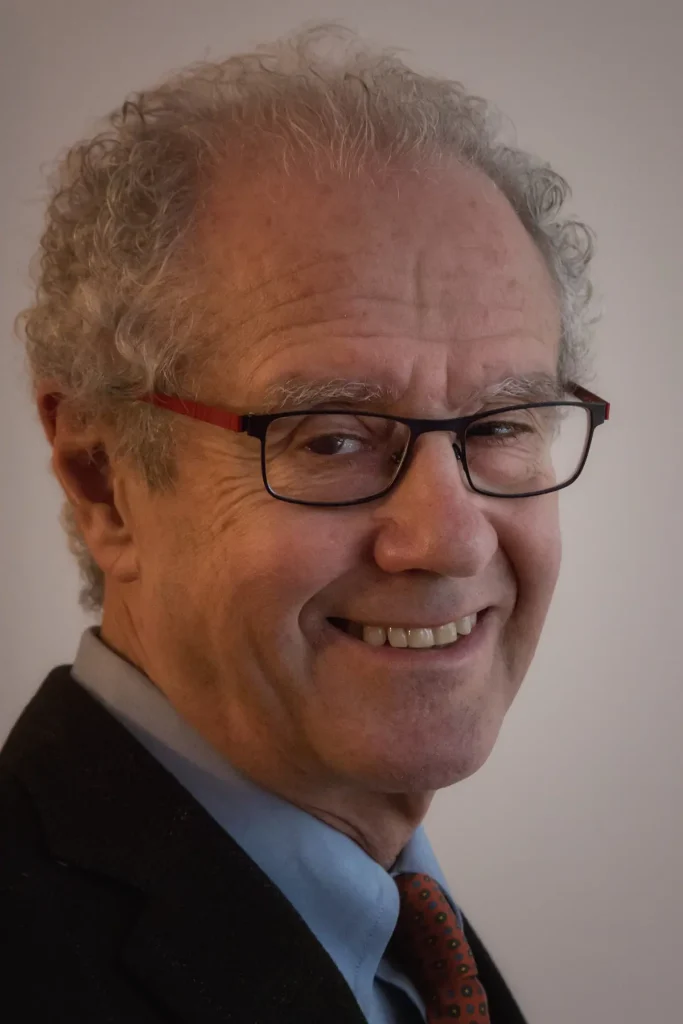
Jeffrey Fredberg, PhD
“Julian proves that nice guys can finish first.”
Jeffrey J. Fredberg, PhD, Professor of Bioengineering and Physiology at Harvard University.
“If you’re with Julian, you can’t not have a smile on your face. It’s never, ever boring. It’s always challenging in a good way and stimulating.”
Julian is also persuasive. When we would be at the NIH at a meeting where grants are being reviewed, if one person doesn’t like your grant, it’s really hard to get it funded. I’ve seen Julian turn the room, where two other reviewers had had very negative things to say and Julian in his very Julian way will say, “Gee guys, you know, have you thought about this other aspect of the work and why this is so important?” And like five minutes later, he totally opened minds and turned the review around. Julian was never shy. It didn’t make any difference how famous these other people were, or how knowledgeable they were. If Julian saw something that he thought was valuable, he would speak up.
He’s also brilliant and creative. Once we went to a meeting together in Australia. I don’t remember any of the science from that meeting, but I’m sure everyone who was there remembered Julian composing and singing and playing a song about cytokines on the piano. It was fantastic.
Julian is a great leader. He doesn’t just educate people. A great leader makes great leaders. He trained other people who went on to other institutions and to become great leaders.
When you meet people who get high in the academic ranks, they can tend to be a little arrogant or pushy or assertive. Not Julian. Julian took a totally different approach and did it his own way.
There’s not a selfish bone in his body. He understands why he’s on this earth, and he has fulfilled everything he possibly could have done. He’s a gentle soul. But on the other hand, don’t mess with him. Because he’ll put you in your place, but in such a gentle way.
Julian is a man of integrity. He knows what the right thing is to do. He is one of a kind.”
About the Institute for Translational Medicine (ITM)

The Institute for Translational Medicine (ITM) helps you live your best life by making research breakthroughs happen and getting those discoveries into the real world to improve your health as soon as possible.
The ITM is a partnership between the University of Chicago and Rush in collaboration with Advocate Aurora Health Care, Illinois Institute of Technology (Illinois Tech), Loyola University Chicago, and Endeavor Health that’s fueled by about $51 million in grants from the National Center for Advancing Translational Sciences at the National Institutes of Health through its Clinical and Translational Science Awards (CTSA) Program.
The ITM is part of a network of more than 50 CTSA Program-supported hubs across the country working to slash the time it takes to develop and share new treatments and health approaches. We work with you and for you to make participating in health research easy, so that together we improve health care for all.
ITM Contact: Sara Serritella, Director of ITM Communications, serritella@uchicago.edu
This project is supported by the National Center for Advancing Translational Sciences (NCATS) of the National Institutes of Health (NIH) that supports the Institute for Translational Medicine (ITM) through Grant Number UL1TR002389.


